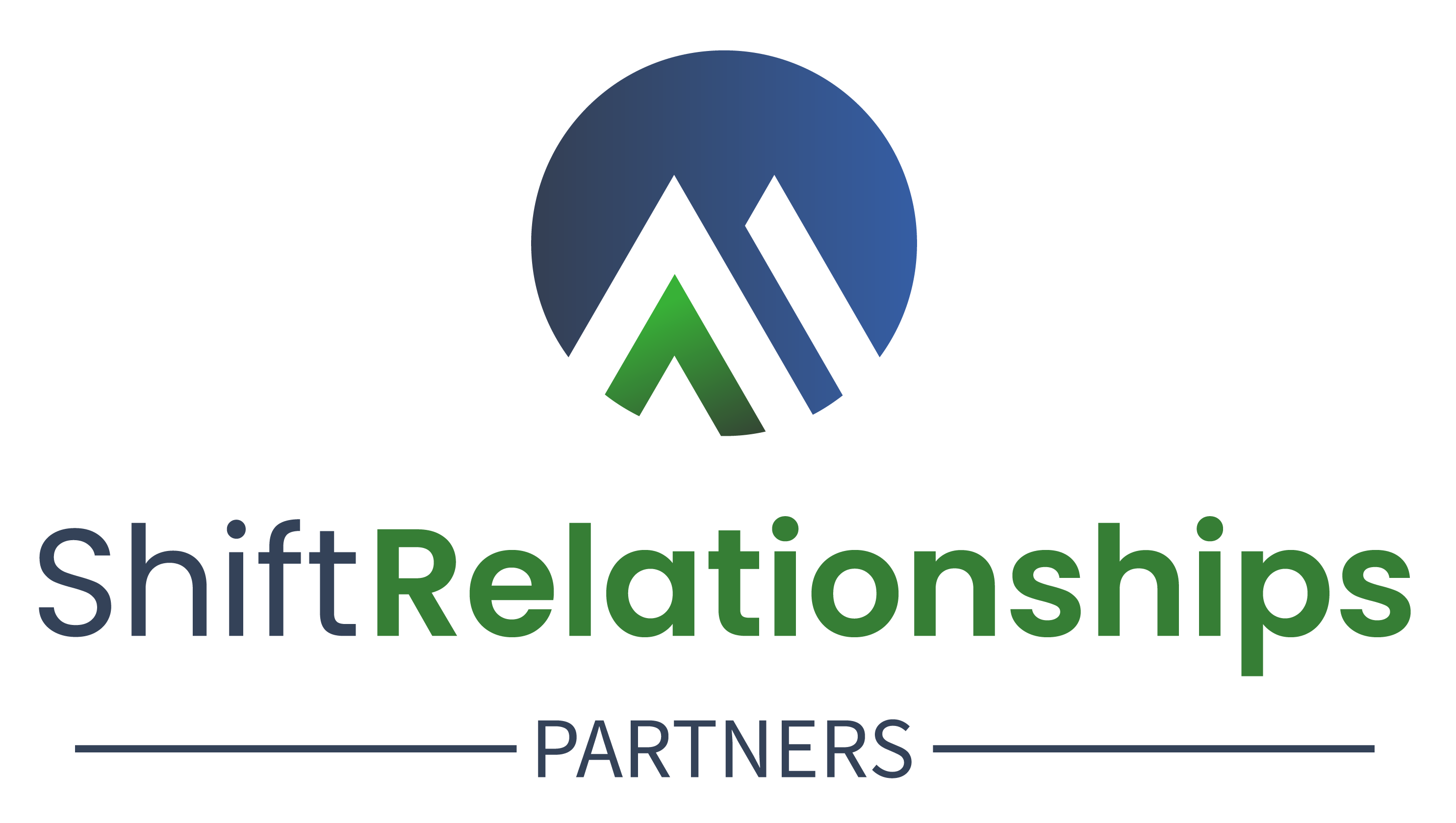EQ Training for Teams and Families
Shift Relationships Partners specializes in cultivating emotional intelligence within families and teams using a unique approach to personal and professional development. Through a tailored blend of workshops, coaching, and interactive exercises, our firm empowers individuals to better understand and manage their emotions, while equipping them with the tools to navigate the complexities of human interactions.
Our Approch
We help teams thrive, relationships grow, and strengthen family bonds at home by growing self-awareness and learning effective communication through forging new tools. Our innovative programs create a positive ripple effect that leads to more harmonious, productive, and emotionally intelligent environments both in and outside the workplace.
OUR TEAM

Aaron Earlywine

Heidi Earlywine
Most Recent Blogs

Window of Tolerance
“ Being emotionally intelligent means practicing self-empathy and patience for yourself. It's okay to need breaks, ask for help, or take steps to manage your stress.. ”
The "Window of Tolerance" is a concept often discussed within the framework of emotional intelligence and mental health. It's a term used to describe an individual's optimal state of arousal (regulation) where they can effectively manage stress, emotions, and challenges without becoming overwhelmed (dis-regulated). The term Window of Tolerance was first coined by Dr. Dan Siegel about 25 years ago in his book The Developing Mind. Understanding and expanding your window is one very important aspect of growing emotional intelligence.

Here are some key points to help you understand and work with your Window of Tolerance:
Optimal Arousal Zone (Regulated): The Window of Tolerance represents a range of emotional and physiological arousal where you can function at your best. When you are within this zone, you can think clearly, manage stress effectively, and engage in positive relationships. Outside of the zone we either escalate, or shut down. The further outside of this zone we get, the harder it is to get back into our regulated zone.
Understanding Your Limits: Emotional intelligence involves recognizing your own limits when it comes to stress and regulation. It's crucial to be aware of when you're approaching the edges of your window, which can differ from person to person. Self-awareness is the key to knowing your limits.
Recognizing Stress Responses: When you move outside of your Window of Tolerance, you experience stress responses such as anxiety, anger, or panic which are expressed through our nervous system in sensations. Being emotionally intelligent means identifying these responses in yourself and understanding that they are natural reactions to stress. Recognition is the key!
Self-Regulation: Emotional intelligence helps you develop the skills to manage or regulate your emotions and get back to your Window of Tolerance when faced with stressors of any kind. Techniques like mindfulness, deep breathing, and grounding exercises can be beneficial.
Expanding Your Window of Tolerance: A key goal of emotional intelligence is to expand your Window of Tolerance over time. It’s impossible to stay in your window forever but the wider our window, the more difficult it is to knock us out and easier it is to get back into it. There are many ways to expand your window. Daily we increase our window by getting enough sleep, eating right, exercise,etc. We also increase our window by growing in self-awareness by understanding what pushes me out of my window.
Self-Empathy: Being emotionally intelligent means practicing self-empathy and patience for yourself. It's okay to need breaks, ask for help, or take steps to manage your stress. Curiosity is often a companion to empathy and will naturally grow your window as you become aware and gracious to yourself.
Social Awareness: Emotional intelligence also involves recognizing the Window of Tolerance in others. Once I am self-aware it makes it easier to be aware of others, recognizing the emotions others have. Understanding when someone is approaching their limit can help you communicate more effectively, offer support, and avoid triggering their stress responses.
Healthy Boundaries: Establishing and maintaining healthy boundaries is a crucial aspect of managing relationships within your Window of Tolerance. Setting limits on your commitments and obligations can prevent you from moving outside of your window and help others too.
Seeking Support: Emotional intelligence includes the ability to seek support from others when you're outside your Window of Tolerance (Co-Regulation). This might involve talking to friends, family, or a mental health professional who can help you manage your stress and emotions.
Expanding and managing your Window of Tolerance is an ongoing process that can significantly improve your emotional intelligence and overall well-being. It allows you to navigate life's challenges and relationships more effectively while maintaining a healthy balance in your emotional responses.
Testimonials
Aaron has a warm, approachable and welcoming nature, along with the breadth of experience both in schools and in the community.
Chris Wells, School Administrator


Facebook
Instagram